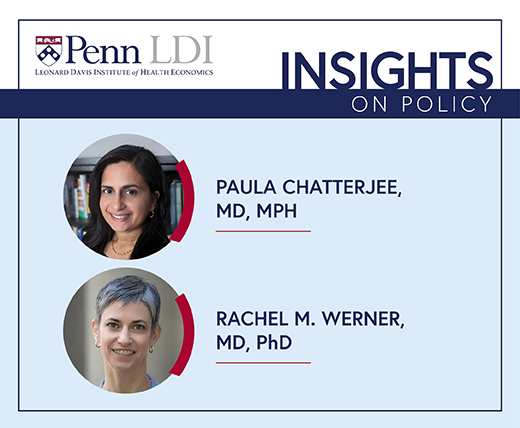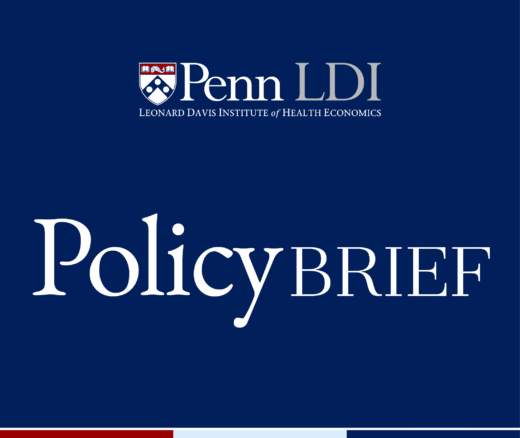
Analysis of the Rural Health Transformation Program
Memo: Response to Request for Analysis
Population Health
News

Shivan Mehta, MD, MSHP, an LDI Senior Fellow and the Associate Chief Innovation Officer at Penn Medicine has received the 2024 Association for Clinical and Translational Science (ACTS) Distinguished Investigator Award.
ACTS has 5,000 members from academic institutions, industry, philanthropic agencies and government across the country. The organization supports research to improve team science and integrate multiple disciplines with the goal of improving the efficiency with which new therapies are integrated into clinical practice.
During an award ceremony at the ACTS annual Translational Science meeting in Las Vegas, Mehta was honored as a “senior investigator whose innovative research has had a major impact through clinical and translational science, specifically in the realm of implementation and dissemination of translational solutions to illness and clinical problems.”
Mehta co-leads the Penn Medicine’s Center for Health Care Transformation and Innovation team that has run over 30 pragmatic clinical trials in areas such as cancer screening, vaccination, and remote monitoring. Through partnership with clinical operations, the team has shown that behaviorally informed approaches such as opt-out framing, effort reduction, and text navigation can be rapidly scaled, resulting in thousands of additional patients receiving preventive care.
An Associate Professor of Medicine and Health Policy at the Perelman School of Medicine, Mehta is also the Director of Penn’s Population Health Lab.
He received his undergraduate degree in Economics from Yale University, his MD and Master of Science in Health Policy Research from the University of Pennsylvania, and his MBA in Health Care Management from the Wharton School.

Memo: Response to Request for Analysis

Lessons from the Past, Imperatives for the Future

A New Study of a Sample of Facilities Found Half Without Any Behavioral Health Staff

Physicians Were Paid About 10% Less for Visits Involving Black and Hispanic Patients, With Pediatric Gaps Reaching 15%, According to a First-of-Its-Kind LDI Analysis

A New Review Finds Hospital Mergers Raise Prices Without Improving Care, and Urges Regulators to Stop Accepting Quality Claims to Justify Consolidations

Technology Helps Older Adults Stay at Home—But May Delay Necessary Transitions to Higher Levels of Care